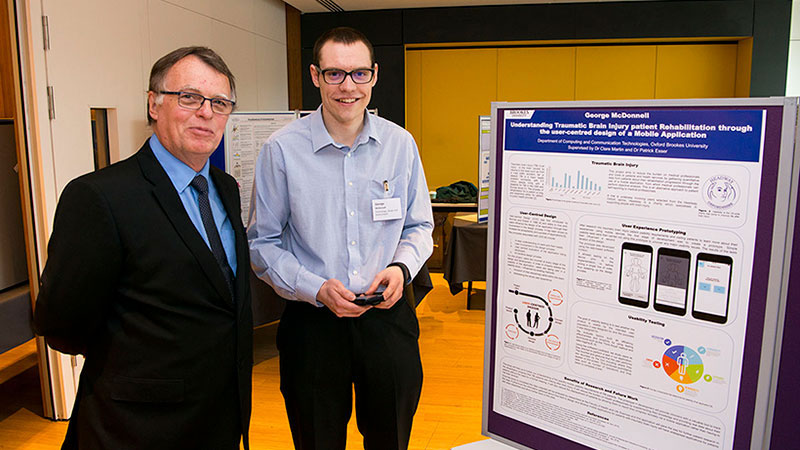George McDonnell only embarked on the research process in the final year of his BSc in Computer Science; several months later, however, his research was being used to create a prototype of a smartphone application which could help track the progress of individuals recovering from traumatic brain injury (TBI). How, in such a short time-frame, did George pave the way for a major contribution to the life of health professionals and their clients?
While undertaking research for his undergraduate dissertation, George recognised a pressing problem that affects sufferers of TBI, as well as the clinicians that aim to help these individuals: the rehabilitation process is long-winded and expensive for both parties involved. Consequently, he set out to develop a mobile telephone application that would relieve the burden felt by both client and professional.
First, George visited Headway Oxfordshire, where he met people whose lives were affected by TBI and who might benefit from the eventual creation of the app. This experience provided him with initial ideas - such as how sufferers of the health issue use mobile devices - upon which he could conduct the rest of his research.
After receiving feedback from these clients, George took his preliminary findings to 'Posters in Parliament' where he had the opportunity to display his work-in-progress to politicians and higher education policymakers. He used the feedback he got to shape his ideas, which he wrote about in the Oxford Mail and followed up at the Get Published! Student Research Conference.
Yet again, presenting for staff members, fellow students, and even local MP Andrew Smith, gave him the chance to receive more feedback on his ideas, which were used to develop a prototype for the application in order to aid individuals with TBI.

